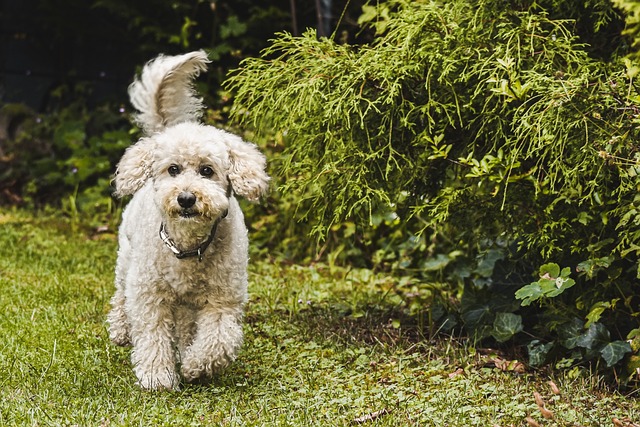Poodle puppies are cute, playful, and intelligent. However, like all other breeds, proper training is required to develop good habits in them. One of the very first challenges every new owner faces is potty training. Though the process may seem daunting, it’s achievable if one decides to follow a clear and consistent plan. We’ll give you certain tips and techniques that will help you potty train your poodle puppy in record time. Whether you’re a first-time dog owner or experienced, the following guide will make it a whole lot easier for both you and your furry friend.
1-Understanding your poodle puppy
- Inquisitive: They are naturally inquisitive and may lead them to a lot of accidents if they are not watched.
- Playful: They love playing, and sometimes they may forget because they get too caught up in playtime.
These breed characteristics, when understood, will help in modifying your approach to training by focusing on the needs of your puppy. Patience, consistency, and positive reinforcement are the major keys to success here.

2. Why start potty training early?
Early potty training is an essential endeavor for a number of reasons:
- Instills Good Habits: Puppies learn good and bad habits. The earlier you start your routine, the better habits they will develop.
- Eliminates Accidents: The sooner training starts, the less likely your puppy will get into the habit of eliminating in the house.
- Trust and Understanding: Early training lays the foundation for a trusting and communicative relationship between you and your puppy, as they come to understand and respect your commands.
Puppies as young as 8 weeks old may start potty training. At this age, their bladders are small and will need quite frequent potty breaks. Consistency and patience will go a long way toward shaping these dogs’ behaviors.
3. How long does It take to potty train a poodle puppy?
The time it takes to potty train a poodle puppy depends on:
Puppy’s Age: The younger the puppy, the longer it will take to develop bladder control. Consistency of Training: The more regular and consistent the training is, the faster this process will go. Your Puppy’s Personality: Your puppy may simply take longer learning because of his personality.
On average, a poodle puppy takes approximately 4 to 6 months to be fully potty trained. If you do it right, you can achieve big improvements in just a few weeks.

4. Establishing a Schedule
Establishing a schedule is an important part of potty training for any poodle puppy. Poodles are dogs that mostly cherish routine; so once you establish a schedule, they will know what to expect.
How to Establish a Potty Training Schedule:
- Morning Potty Break: First thing every morning, take him outside.
- After Meals: Generally, a puppy will have to go potty from about 10-15 minutes after eating.
- After Playtime: All that activity can make your puppy’s bladder twitch; take him out after play sessions.
- Before Bed: Finally, take your puppy outside immediately before bedtime to reduce the chances of night time accidents.
- Every 2-3 Hours: Puppies have very small bladders and need to go often.
You want to get your puppy outside before they have to go. With a schedule, it won’t take long for your poodle to figure out when and where they should go to the bathroom.
5- Determine a potty location
Picking a certain spot in your yard, or in a park close by, that you would like to have your puppy go to the bathroom can speed up the process. The familiar smell of the spot will remind them what they’re supposed to do there.
How to choose a potty spot:
- Keep It Consistent: Always take your puppy to the same spot to go to the bathroom.
- Quiet Area: Pick a spot away from distractions, so your puppy can focus on the task.
- Accessible Area: It should be an area that’s easy to reach quickly, especially during unpleasant weather.
6. Crate training: A useful tool
Crate training can be a very useful tool when potty training your poodle. Poodles are naturally clean dogs and prefer not to go where they sleep.
How to Crate Train Your Puppy for Potty Training:
- Optimize for the Right Size: It is big enough for your puppy to stand, turn around, and lie down but not big enough to eliminate at one end and sleep in another.
- Make It Comfortable: Place soft bedding and some toys inside the crate to make this a positive space for your puppy.
- Put Them in the Crate for Short Periods: Allow your puppy to spend time in the crate, albeit for relatively longer periods of time, but not too long since they can’t hold it and will have accidents.

7. Using positive reinforcement
Positive reinforcement works on a poodle puppy. This is to reward your puppy whenever they do well to enable them to always do that kind of behavior.
Instinctive Reinforcement Tips
- Praise Immediately: The instant your puppy finishes pottying in the correct area, shower praise enthusiastically.
- Give Treats: Small and yummy treats may help inspire poodles.
- Be Consistent: Each time your puppy relieves himself in the right area, he gets a reward. He will have an easy time knowing what he is supposed to do.
Even with the best plan, you’ll have a few accidents. Common problems that you would likely encounter, and solutions to such, will include the following:
Problem 1: Frequent accidents indoors
Solution: Increase potty breaks. Take your puppy outside much more often, such as right after meals, drinks, plays, or naps.
Problem 2: Puppy doesn’t Go potty uutside
Solution: Be patient and give them more time. Sometimes puppies take a few extra minutes sniffing around before they feel comfortable going.
Problem 3: Puppy goes potty in their crate
Solution: Either your puppy’s crate is too big, or he is remaining in the crate for too long. Use the right size crate and let him out often.

9. Training older poodles
If you have just adopted an older poodle, don’t worry. That’s perfectly okay-potty training can still be done. Adult poodles can learn new things, too, and even though it might take a bit more time than with a puppy, they can learn.
Training tips for older poodles:
- Create a Schedule: This is necessary for adult dogs also, just like the puppies.
- Watch for Their Cues: Sniffing or circling indicates that they want to go.
- Be Patient: It may take an older dog some more time to set into the groove, but patience and consistency are the key to their learning. Older poodles potty training is possible and they are able to learn.
10. Tips for success and final thoughts
Housebreaking a poodle puppy requires a great deal of time, patience, and dedication; here are some concluding tips for success:
- Stay Calm and Positive: Accidents are going to happen. Instead of scolding them, clean up calmly and rack your brains for what went wrong.
- Be Consistent: The more consistent you are, the quicker your puppy will learn.
- Keep a Potty Journal: Tracking when your puppy goes will help you find his patterns and thus adjust the schedule accordingly.
Conclusion of potty training your poodle puppy
Potty training your poodle puppy can be an easy and very rewarding venture if it is done with a little patience and in the right manner. A very smart dog, poodles usually are eager to please and quick to learn. With these few easy steps, you can have a happy, well-trained puppy who knows just where to go.
Remember, all puppies learn at their own pace, so be patient, stay positive, and enjoy the process of teaching your poodle puppy good habits that will last a lifetime.
